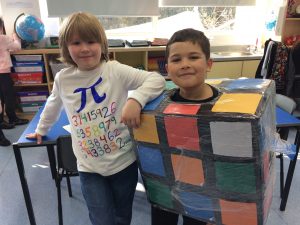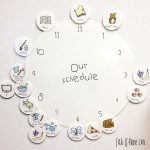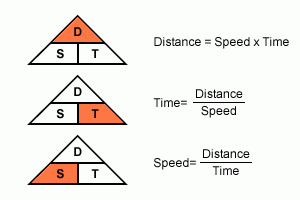Written by Robert Watson (Vice-Principal) and Elena Granato (Year 3 Primary Co-Teacher)
 You may have seen information regarding ‘Pi Day’ and wondered why we are celebrating a single number. Well, in truth, we are not celebrating Pi (3.14…) itself. The aim of Pi Day is to promote the love of Mathematics; making it fun, interesting, engaging and real. Too often, the application of Mathematics is perceived as being able to solve rows of abstract calculations, where there is no context to the real world, and no link to the child’s own experiences. Don’t get me wrong – mental arithmetic and rapid number recall are very important skills to have, but they should not be considered the only aspect of Mathematics.
You may have seen information regarding ‘Pi Day’ and wondered why we are celebrating a single number. Well, in truth, we are not celebrating Pi (3.14…) itself. The aim of Pi Day is to promote the love of Mathematics; making it fun, interesting, engaging and real. Too often, the application of Mathematics is perceived as being able to solve rows of abstract calculations, where there is no context to the real world, and no link to the child’s own experiences. Don’t get me wrong – mental arithmetic and rapid number recall are very important skills to have, but they should not be considered the only aspect of Mathematics.


During Pi Day, we provided opportunities for children to solve real life problems, through collaboration and teamwork. The contextual problems they were asked to solve helped engage the children, as they will be able to link it to their own experience and knowledge. It will also help them develop their abilities to apply their mathematical skills to solve problems, which, in essence, is what Mathematics is all about.
 Rachel (Year 3D): “Pi day was fun because we got to do activities outside like a Maths scavenger hunt and Maths exercise. I like doing Maths when we get to run around”
Rachel (Year 3D): “Pi day was fun because we got to do activities outside like a Maths scavenger hunt and Maths exercise. I like doing Maths when we get to run around”
DanJi (Year 3D): “I like Pi Day because now I know how to find the circumference of any circle”
There are many ways in which Mathematics can be made more fun by placing it into context. It is important that children realise that Mathematics is all around them, and not just something they do for one hour each day at school.
Why not try some of the following things at home:
 Next time you are eating pizza/cake/pies at home, make them earn their slice by asking some questions based on fractions. E.g. “A cake is cut into 8 equal pieces. If Bobby has 2 slices and I have 3 slices, what fraction of the pizza is left?”
Next time you are eating pizza/cake/pies at home, make them earn their slice by asking some questions based on fractions. E.g. “A cake is cut into 8 equal pieces. If Bobby has 2 slices and I have 3 slices, what fraction of the pizza is left?”- ‘Time’ is an important concept to understand and to be able to use as a child. Next time you are going out, ask your children questions, such as “It is now 8.37am. We will be going out at 9.00am. How long do you have to get ready?”
 Reading detailed timetables and schedules can be quite challenging for adults, let alone children. So next time you want to book your flights for your next holiday, involve your children in developing the travel itinerary. Let them know the time and date that you want to leave, and ask them to research the best flights for you (although ensure they don’t book the flights until you have checked!)
Reading detailed timetables and schedules can be quite challenging for adults, let alone children. So next time you want to book your flights for your next holiday, involve your children in developing the travel itinerary. Let them know the time and date that you want to leave, and ask them to research the best flights for you (although ensure they don’t book the flights until you have checked!) Cooking with your child can be an excellent way to develop your child’s sense of weights and measures, whilst having great fun too. Ask them to follow the recipes, and measure out the different ingredients as you go along.
Cooking with your child can be an excellent way to develop your child’s sense of weights and measures, whilst having great fun too. Ask them to follow the recipes, and measure out the different ingredients as you go along.- For the older Primary children, you can ask them questions related to a journey that you will be taking together as a family. E.g. “We will be travelling to the swimming carnival. It will take 45 minutes to arrive at the destination, and it is 36km away. What was our average speed for the journey?”

These are just a small handful of ideas, and there are a multitude of other ways to bring Mathematics to life at home and at school. If you are looking for ways to engage your child in more meaningful mathematical experiences, then please speak with your child’s class teachers and they will happily discuss different possibilities with you.